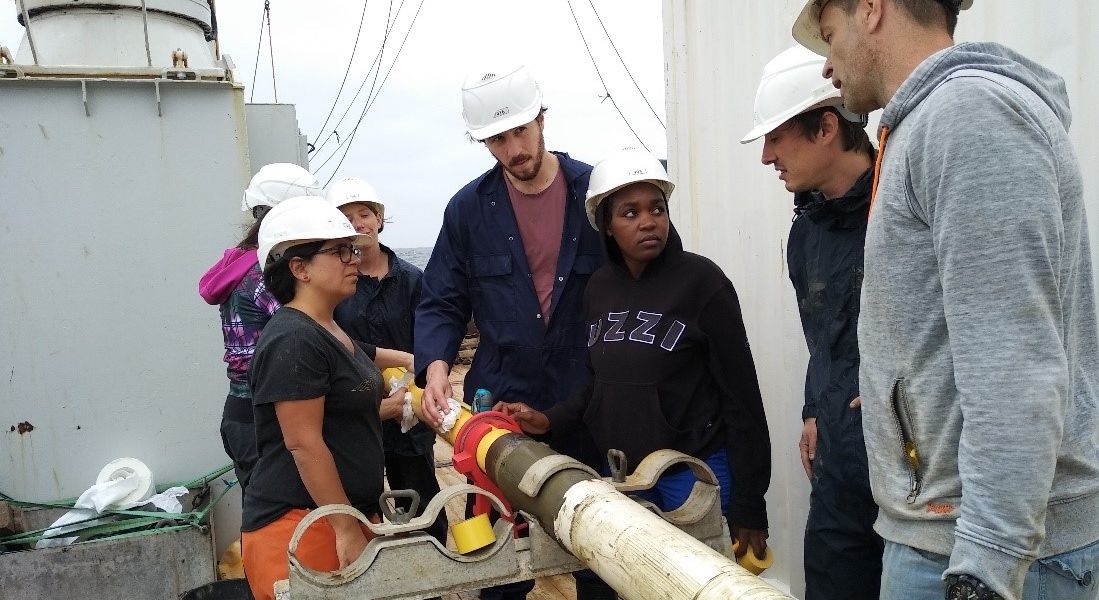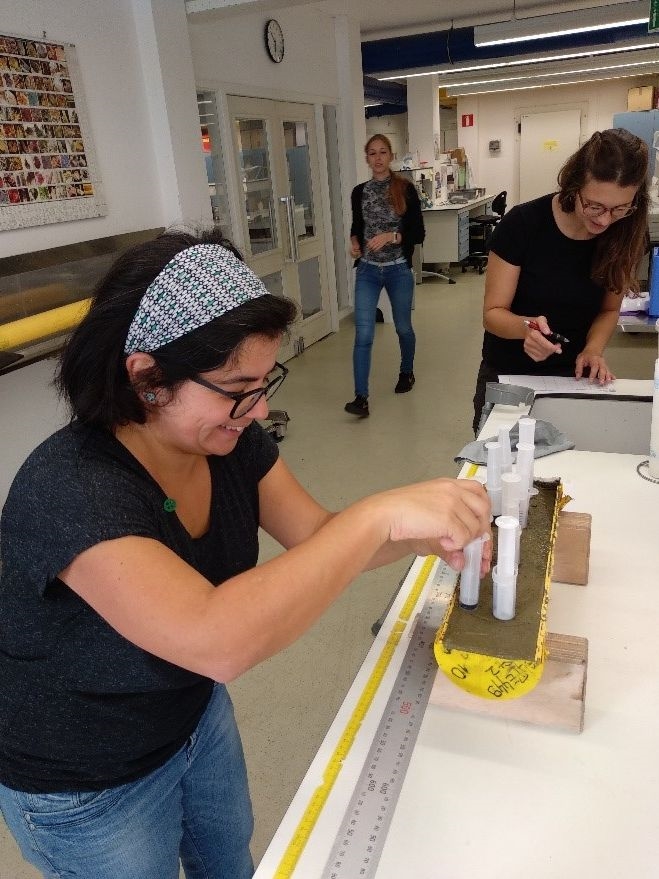Reconstructing carbon and nutrient cycling in the Benguela upwelling system
Upwelling areas are ocean regions where currents drive nutrient-rich deep waters to the surface. These areas teem with life and represent biogeochemical hotspots where intense cycling and burial of essential elements such as carbon (C), nitrogen (N) and phosphorus (P) occur, with a global impact on their distribution. Importantly, the biogeochemical cycles of C, N, P are strongly impacted by climate-driven changes in ocean chemistry, particularly dissolved oxygen availability in the water column. A major goal in research on the ocean C cycle and feedbacks with climate is to advance our understanding of the fascinating interplay between physical and chemical oceanography, O2 availability (redox conditions) and nutrient cycling in key marine regions such as upwelling areas.
In 2019, we visited the world’s most productive upwelling region: the Benguela upwelling system (BUS) in the southeast Atlantic Ocean. The research cruise was aimed at increasing our understanding of coupled C-N-P cycling in the BUS, an upwelling area of enormous ecological and economic value in which nutrient cycling and ocean-climate feedbacks are still incompletely understood. We collected a sediment core containing the top ~ 10 m of the seafloor, which has provided us with a high-quality paleorecord of the oceanographic and climate history of this area over the last 50,000 years.
This unique sediment record forms the basis of current efforts by NIOZ researchers to understand how past ocean conditions and particularly O2 availability have been recorded in the sediment, and how these conditions have been affected by climate fluctuations over glacial - interglacial cycles. Within this context, MSc projects are now available in which a variety of analytical tools will be used, tailored to the interest of the student, to investigate BUS biogeochemical cycling. Techniques include but are not limited to:
- spectroscopic and chemical bulk element analysis of sediments to investigate (paleo)climate-ocean feedbacks,
- chemical analyses to elucidate iron-phosphorus-sulfur speciation and cycling in the sediment,
- analysis of carbon and nitrogen isotopes and
- biomarker lipids to reconstruct carbon and nitrogen cycling.
Requirements
We are looking for highly motivated MSc students with a background and keen interest in earth sciences and/or (biogeo)chemistry. Projects within the BUS research framework have a planned duration of 6 - 9 months and will take place at NIOZ, Texel. Goals will be set according to duration and students’ interests. The projects will involve literature research, inorganic and/or organic laboratory experiments and data analysis. The earliest possible start date for this project is June 2022.
Contact
For further information, please contact Dr. Darci Rush (darci.rush@nioz.nl), Dr. Peter Kraal (peter.kraal@nioz.nl) or Dr. Rick Hennekam (rick.hennekam@nioz.nl).

